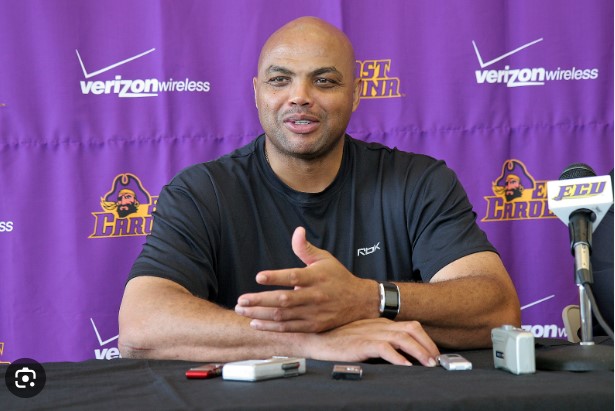Basketball Hall of Famer Charles Barkley has been closely following the SCOTUS ruling on affirmative action in higher education and as a result of the Supreme Justices’ decision, is now planning to rewrite his will in an effort to insure that his alma mater, Auburn University, will be “more diverse”.
Barkley, who is set to headline a new primetime weekly CNN show “King Charles,” with longtime broadcaster Gayle King this fall, told media outlet AL.com that he wanted to do something to help black students at his alma mater after hearing the news.
Barkley initially had included a donation of $5 million to the Alabama-based University.
“In my will, I am leaving Auburn $5 million,” the 60-year-old NBA Legend told the media outlet on Friday. But now these plans have changed, as he wants to be sure that the money will go to a cause that he holds most dear: “I’m going to change it to be just for scholarships for Black students. That’s just my way of trying to make sure Auburn stays diverse.”
“I love Auburn,” Barkley added. “I’ve actually changed it to be used for kids from poor homes. But after that ruling yesterday, my phone was blowing up. I was talking to my friends and said, ‘I need to make sure Black folks always have a place at Auburn.”
“So, I’m gonna change my will and make it exclusive for Black students—all $5 million.’ It’s just for me the right thing to do. I always want to make sure that Auburn’s diverse.”
The NBA Hall of Famer also said that he initially thought of making his bequest exclusive to Black students, but decided not to, according to AL.com.
“We’ve always lacked diversity,” Barkley said. “I’m doing my part to make sure we are more diverse.”
The enrolled student population at Auburn University, both undergraduate and graduate, is 77.4% White, 5.28% Black or African American, 3.62% Hispanic or Latino, 2.45% Asian, 2.42% Two or More Races, 0.293% American Indian or Alaska Native, and 0.0618% Native Hawaiian or Other Pacific Islanders.
Barkley’s decision came a day after the Supreme Court struck down the use of race being a factor for college admissions. The court’s decision upended a decades-long practice of colleges and universities using affirmative action programs to select students from the applicant pools.












